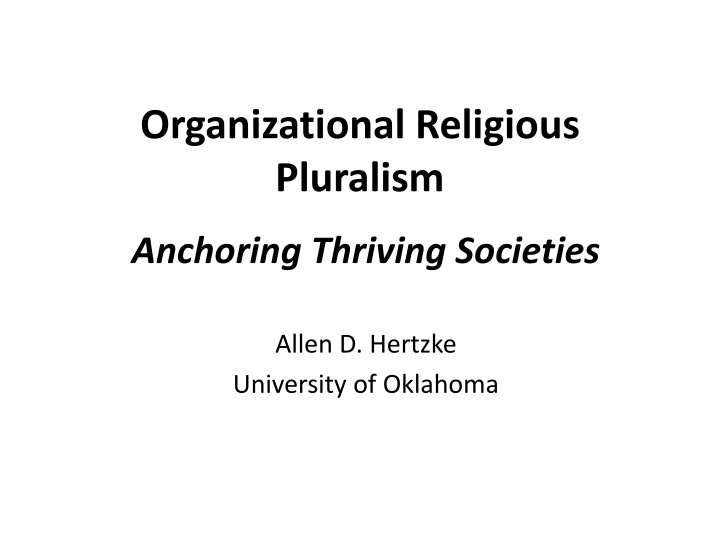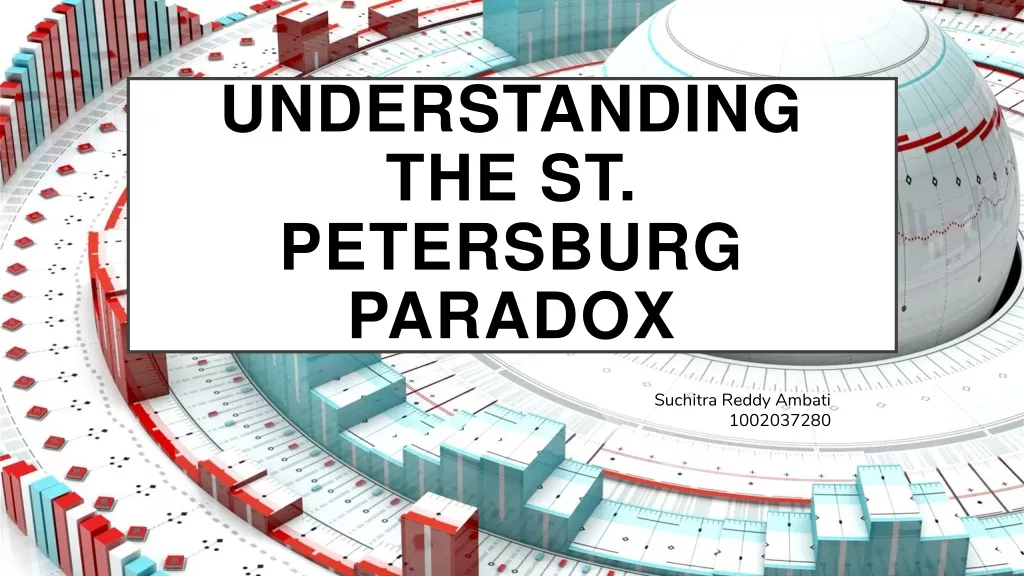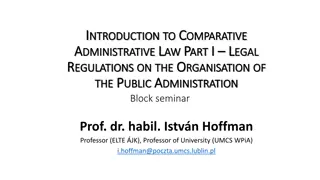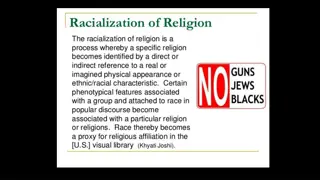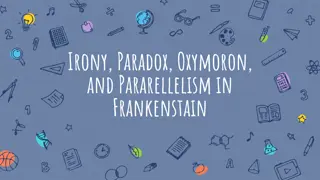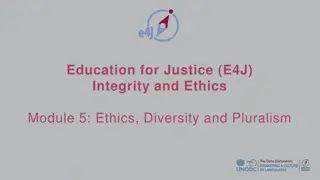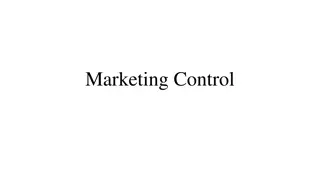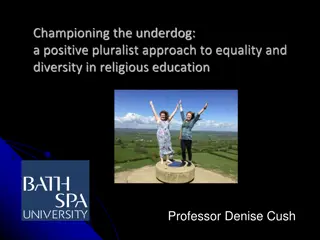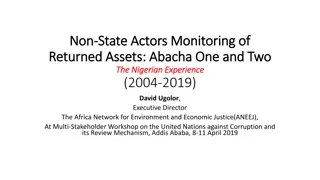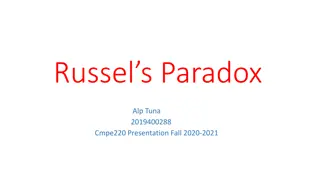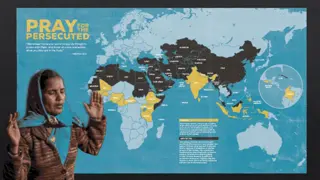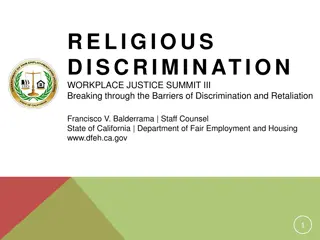Religious Pluralism and Civil Society: A Paradox in Government Control
Understanding the intricacies of religious pluralism in the context of government control reveals a paradox where restricting religion can hinder social cohesion and economic growth. Through insights on the counterproductivity of control, the role of religious organizations in civil society, and the concept of twin tolerations, this analysis delves into the complex dynamics shaping global perspectives on organizational religious pluralism.
Download Presentation

Please find below an Image/Link to download the presentation.
The content on the website is provided AS IS for your information and personal use only. It may not be sold, licensed, or shared on other websites without obtaining consent from the author.If you encounter any issues during the download, it is possible that the publisher has removed the file from their server.
You are allowed to download the files provided on this website for personal or commercial use, subject to the condition that they are used lawfully. All files are the property of their respective owners.
The content on the website is provided AS IS for your information and personal use only. It may not be sold, licensed, or shared on other websites without obtaining consent from the author.
E N D
Presentation Transcript
Organizational Religious Pluralism Anchoring Thriving Societies Allen D. Hertzke University of Oklahoma
The Paradox of Government and Civil Society Impulse of governments around the world is to control organizational religious pluralism -- By restricting all religion -- By restricting particular religions -- By fusing state with religion -- By enforcing religious orthodoxy But this undermines the flourishing civil society that produces social cohesion, citizen loyalty, and growing economies -- the very things governments want to promote Restraint on hegemonic impulse is good for the state
Why Control is Counterproductive Religion draws upon the deepest human yearnings for identity and meaning Powerful force around the globe today God s Century, by Toft, Philpott, and Shah Repression produces militancy Pluralism is natural condition of religion Peter Berger, Everyone is everywhere National Unity = acceptance of religious diversity
Religious Organizations and Civil Society: Evidence from Social Science Tocqueville first noticed the vibrant role of religion in the new American regime People thrive in mediating institutions not displaced by the state Religious associations produce social capital that facilitates collective endeavors Robert Putnam Religious associations teach civic skills and democratic deliberation
The Twin Tolerations Bargain Alfred Stepan, Religion, Democracy and the Twin Tolerations : What are the institutional requirements of stable democracies? State allows and thus tolerates religious organizations to operate in civil society, even politics In return religious institutions agree to tolerate others, to renounce use of coercive state power to repress competitors The Twin Tolerations does not require a secular state
Status of Global Religion 75% of world s people live in countries with high restrictions on religion [Pew Forum, 2012] Believers: discrimination, intimidation, harassment, arrest, torture, death Communities and Organizations: onerous registration rules, prevented from operating, property destruction, mob violence Undermines progress for democracy and freedom [Freedom House, 2011]
Threats in the Cradle of Liberty 2006: Boston Catholic Charities shuts down historic adoption program 2007: Texas City zones churches out of retail quarter 2010: DC Catholic Charities shuts down foster care program 2011: Illinois Diocesan foster care programs shut down 2011-2012: Religious clubs shut out of universities 2012: New York City bans church rental of school buildings 2012: Multiple lawsuits filed against HHS Health Mandate Logic of global trend to control religious civil society organizations : Pew Religious Restrictions Score of U.S rises
Groundbreaking Empirical Research Historic documentary record IRF, UN, NGOs New coding methods Pew Forum Sophisticated Methods Brian Grim and Roger Finke, The Price of Freedom Denied: Religious Persecution in the 21stCentury Restrictions produce grievances, strife, militancy, and violence Organizational freedom produces positive societal outcomes Liminal book
Correlation of Religious Freedom with Other Freedoms and Well-being within Countries
Empirical Model: Interaction of Social Forces and Government Laws Religious Violence Cycle Religious Freedom Cycle Religious Freedom Social Restriction of Religious Freedom Positive Contributions of Religion to Society Violence related to Religion Governmental Restriction of Religious Freedom Broader Religious Participation Price of Freedom Denied, Grim & Finke, 2011
Diverging Paths Government Restriction Index 8.4 Social Hostilities Index Saudi Arabia 6.8 Qatar 3.9 <1
How Can Governments Promote the Positive Cycle? Protect the autonomy of peaceful religious organizations Provide Legal Personality right to form associations, own property, appoint their own leaders, operate schools, run charitable ministries Allow religious organizations right to print literature, petition government, voice public concerns. Renounce anti-cult, anti-conversion, blasphemy, and apostasy laws
What About Protecting People from Harmful Religion? Education Societal participation and healthy competition Use existing laws On incitement to violence On slander and libel On fraud and abuse
Theological Wellsprings of Civil Society Pluralism Catholic doctrine of Subsidiarity Reform Protestant idea of Sphere Sovereignty LDS Doctrine and Covenants on government Muslim understanding of God s will: Sura 5:48 Vie one with another in virtue Responds to the crucible of the 21st Century: living with our differences in a shrinking world
Portrait of Religious Organizations in Harmony Signing ceremony ending Oregon s 1923 KKK-backed law against religious attire in public schools, April 1, 2010.
